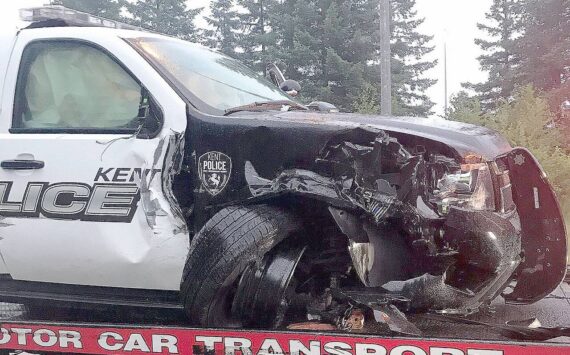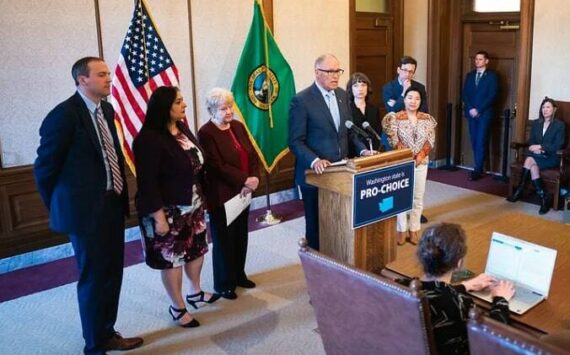Sound Transit came under fire Thursday from a state legislative panel over the agency’s release of emails to political forces supporting its $54 billion expansion and a mailer sent to voters outlining what the plan would cost them.
The Senate Law and Justice Committee focused its three-hour hearing on Sound Transit’s actions preceding the November 2016 election in which voters approved Proposition 1, the ballot measure for the expansion known as Sound Transit 3.
The panel’s Republicans sharply criticized Sound Transit for what it acknowledges was the improper release of email addresses of nearly 173,000 ORCA card holder to Mass Transit Now!, the political committee behind the pro ST3 campaign.
They pressed Sound Transit officials on how the mistake occurred and why no one was disciplined. They also probed Sound Transit’s ties to Transportation Choices Coalition, an advocacy group that provided money and expertise for the pro-ST3 campaign. Sound Transit is a coalition member and paid $35,000 in dues last year.
But some of the most-heated remarks centered on whether Sound Transit deceived voters about the increase in car tab renewal fees. The agency uses a 1996 depreciation schedule that overvalues vehicles. That point isn’t made clear in an information pamphlet the agency sent voters, lawmakers said.
“I think they misled voters every bit as much as they misled the Legislature in getting its tax authority,” Sen. Steve O’Ban, R-University Place, said after the hearing. “I think the public trust in this organization has taken a real hit.”
Sound Transit did not mislead lawmakers or voters, said Sen. David Frockt, D-Seattle, one of two Democratic senators at the hearing. He got a little snarky during the extended grilling of witnesses by Republican members.
“This was an effort to re-litigate a campaign,” he said of the work session.
“There was a vigorous debate last year. For people who wanted the information, it was there. I just feel like this whole thing was a bit of a hit job.”
Thursday marked the second work session in as many weeks focused on Sound Transit’s actions preceding the election. The probe was sparked by a May request from O’Ban and Sen. Dino Rossi, R-Sammamish, who both opposed the ballot measure.
The committee’s chairman said Thursday the panel’s investigation is mostly done.
“Some things came out. I don’t know if there is anything to be referred to any other authority,” said Sen. Mike Padden, R-Spokane Valley.
An executive summary will be written, Padden said. Concerns about car tabs and the potential election of the directors of Sound Transit—a change sought by O’Ban—are likely matters for the next legislative session, he said.
Thursday’s hearing took place in the school board chambers of the Community Resources Center in Everett. Roughly 40 people showed up, including opponents and supporters of ST3.
The measure passed by a margin of a 54 percent to 46 percent. Voters supported it in King and Snohomish counties while rejecting it in the Pierce County portion of the taxing district.
Sound Transit 3 calls for adding 62 miles of new Link light-rail line, including an extension to Everett Station by 2036, via the Paine Field industrial area. The cost is projected to reach $54 billion over the next quarter century.
To pay part of the tab, the motor vehicle excise tax rate rose from 0.3 percent to 1.1 percent, the sales tax went up a half-percent in the taxing district and there’s a first-ever property tax assessment collected by Sound Transit.
Last week, at the panel’s first work session, the Republican-led committee focused on whether Sound Transit misled the Legislature on how much it intended to raise from taxpayers as well as the vehicle valuation method to be used in calculating car tabs.
On Thursday, the panel first delved into the mistaken release of ORCA cardholder email addresses in April 2016. Sound Transit officials said at that time those addresses were co-mingled in a file with the agency’s email subscriber lists. State law bars release of the cardholder information but requires release of the latter, which led to the error.
O’Ban asked Craig Davison, Sound Transit’s executive director of communications, if anyone ever got punished.
“Not internally. But externally every employee carries a heavy burden. We certainly did not want to do anything wrong,” Davison said.
O’Ban steered to the subject of the car tabs during testimony by Geoff Patrick, Sound Transit’s senior media relations and public information manager.
He quizzed Patrick on why there was no mention of the vehicle valuation methodology in the information pamphlet sent to voters. Now, as vehicle owners get their renewal notices, they are enraged by the surge in cost, he said.
They “feel absolutely sideswiped” and blame Sound Transit for not telling them, he said. “Looking back, would you do anything differently?” O’Ban asked.
Patrick said the brochure comprehensively described the plan and projects. Sound Transit also created an online tool to enable residents to get an idea of the cost to them.
“I’m not aware of any other sponsor of a ballot measure putting a calculator on their website to help people calculate how much it will cost them personally,” he said. “I think we were very clear.”
This story first ran in the Everett Herald.







